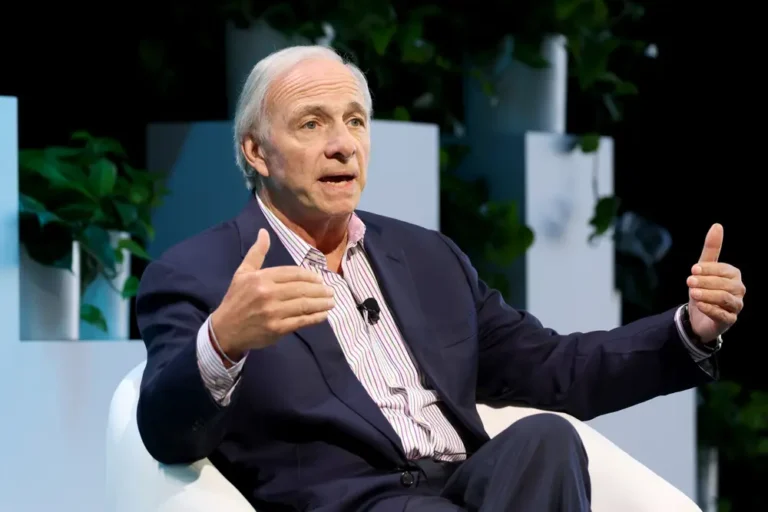A boomer who retired with a $2 million net worth despite working modest jobs shares his advice on retiring comfortably

Richard (not pictured) said he and his wife retired on over $2 million in assets despite some costly investment mistakes.
Richard, who is in his mid-70s, never held a very high-paying job and made various investment mistakes that cost him thousands over his life.
However, the Idaho resident said living frugally, prioritizing retirement accounts, and making smart real estate decisions allowed him and his wife to retire comfortably with over $2 million in assets after a career in state government and consulting.
Richard learned about investment strategies later in life after losing thousands in the dot-com bubble. After that, he said his path to growing wealth was modest and careful. He asked to use his first name only for privacy concerns.
His path is indicative of the “millionaire next door” mindset, which involves concerted efforts to save and invest using very accessible strategies, rather than flashy but risky get-rich-quick schemes or landing an elite, ultra-high-paying career. Still, he acknowledged that not all retirees have the resources to save a substantial amount for their retirement.
“Having a work ethic has helped me throughout my life not just in accumulating wealth but in having people recognize that I’m a reliable person,” Richard said. “You have to be honest, you have to be kind, and you have to help other people.”
Saving up but making mistakes
Richard said his “near-ideal” upbringing taught him the value of money and hard work.
As a teenager, he worked as a paperboy, produce clerk, ice cream vendor, and root beer stand cashier. He estimated earning about $5.25 a week in high school, or about $53 in 2024 dollars.
“I realized the value of money because it gave me this independence to buy the clothes I wanted to buy, allowed me to buy Christmas presents for my siblings and parents,” Richard said.
He also acknowledges that he grew up in a time when life’s necessities were more affordable. In his small, middle-class hometown in Illinois, he said a family could be supported on one income. He worked and lived frugally while attending the University of Illinois, which he said cost just $173 his first semester. He paid back his student loans right after graduating with a psychology degree.
While serving in the Air Force for nearly six years, he purchased a modest home in Sacramento. He and his wife grew food in their garden and made granola from scratch. He said he sold the house when its value doubled.
“I never really thought about what my financial goals were until later,” Richard said. “I remember coming home one Sunday, and I said I really don’t want to have a middle-class existence. I would like to do better if I can.”
In graduate school, he worked as a teaching assistant, started investing using his stockbroker friend’s advice, and bought a condo. He admitted because his parents weren’t financially savvy, he wasn’t a “very disciplined saver or investor,” though he knew never to go into major debt.
He said he wasn’t always sure how to invest properly. Some now-common vehicles intended to make it easy for everyday savers to make diversified investments, like exchange-traded funds, weren’t yet invented, and he said he invested too heavily in penny stocks and riskier investments. He decided to save and invest as much as possible while building his IRA and paying off his existing loans.
While his career has been fairly stable, he weathered two layoffs and lost thousands in investments when the dot-com bubble burst in 2000.
“I haven’t been a disciplined, smart investor throughout my life, but I have always lived frugally,” Richard said. “I purchased real estate and invested whenever the opportunity arose, so it’s an imperfect background. But it shows that even if you make those kinds of mistakes, it’s still possible to accumulate wealth.”
How they’re investing in retirement
Richard maintained his frugality as he inched closer to retirement, avoiding big-ticket items.
Richard retired at 62 when he realized he could be “liberated from a lifetime of labor” and had enough saved. He waited until 65 to claim Social Security, noting he never wanted to rely solely on Social Security for his retirement. His wife retired in 2013, and their assets now total about $2 million, split evenly between their investments and their house.
They live comfortably on about $3,500 monthly in Social Security and dividends from investments, investing about $25,000 annually with annual dividends of about $120,000. Richard said they have long-term care insurance and reserved much of their money for healthcare expenses.
Richard described his investment strategy as “somewhat atypical.” They primarily invest in mutual funds that pay consistently high dividends of about 10%. At their age, Richard said he wants to eliminate individual stocks.
“Although market values can decline or rise, we just stay focused on the rate of return and hope that will not change appreciably,” Richard said. “So far, this is working, and we are satisfied to have a steady income without having to sell funds to generate revenue.”
They still live within their means, but they occasionally take international trips. They keep costs low by flying economy, avoiding expensive restaurants, never going on tours, and staying in Airbnbs.
“I’ve never stayed at a five-star hotel, and I’ve almost always had used cars,” Richard said. “We don’t order takeout every day, and we might go to a restaurant once a week. Add that up, and you’re saving tens of thousands of dollars.”
In retirement, Richard has produced over 70 books about his hometown, American history, and trail guides. He’s also directed a local community group and now volunteers as a tour guide.
“Retirement has been a total joy; it’s similar to having a second childhood where you have complete freedom, and your job is to keep yourself entertained,” Richard said.






